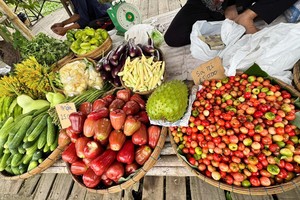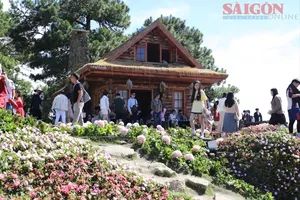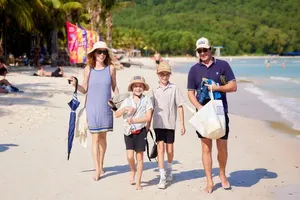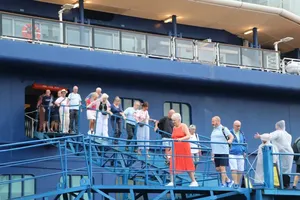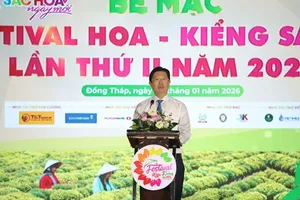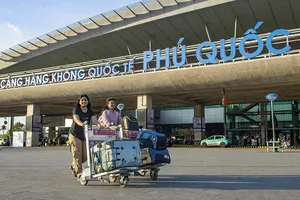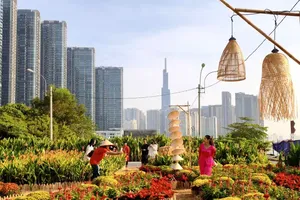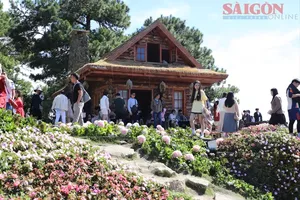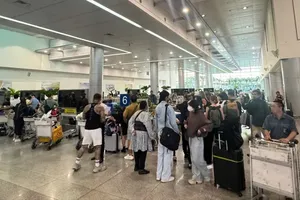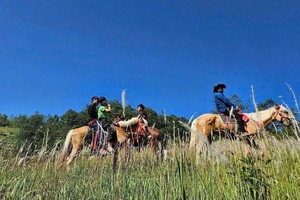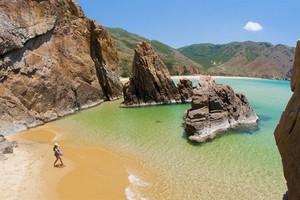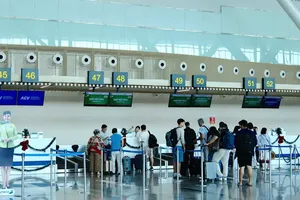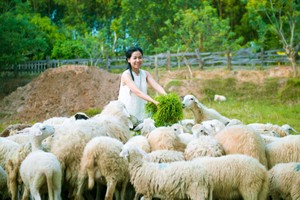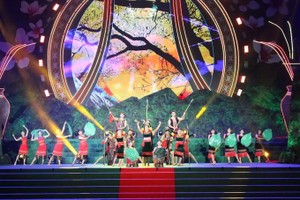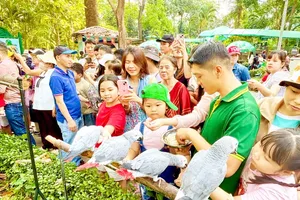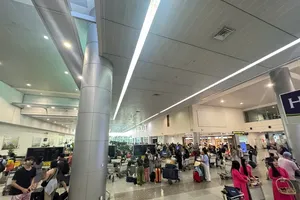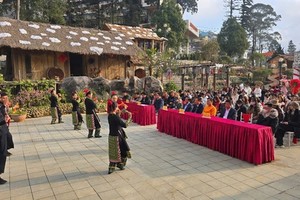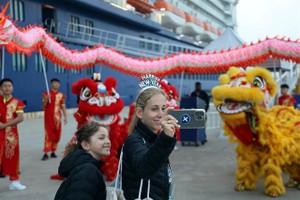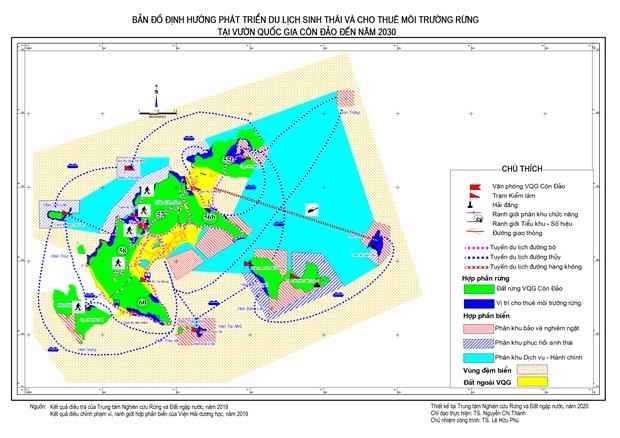
Based on local strengths, Ba Ria-Vung Tau has taken a range of solutions to develop eco-tourism and community-based tourism in combination with landscape conservation.
Director of the provincial Department of Tourism Trinh Hang said tourism is an economic pillar and eco-tourism is among the eight tourist types targeted by the province in 2020-2025.
The province is blessed with primeval forests, mangroves, the Con Dao National Park - a Ramsar site of wetlands of international importance, rivers and sea, which has supported eco-tourism.
Ba Ria and Vung Tau cities have brought into play their potential and strengths, along with existing maritime tourism products to focus on community-based tourism and eco-tourism.
Phu My town has built eco and community-based tourist sites, where high-tech agriculture cooperatives such as Song Xoai and Hac Dich play a role. Tourists also have chances to learn about traditional culture of the Chau Ro ethnic minority group.
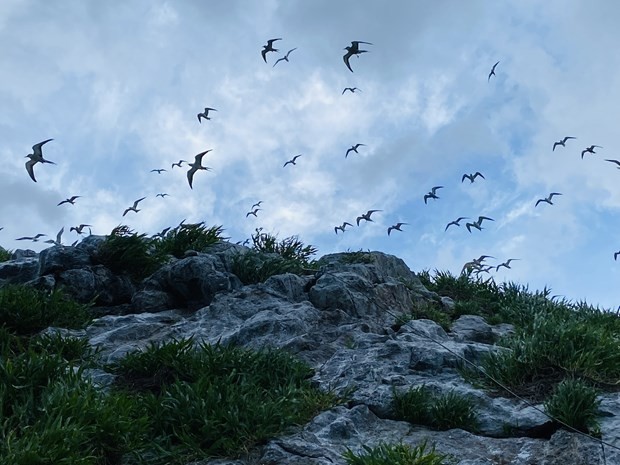
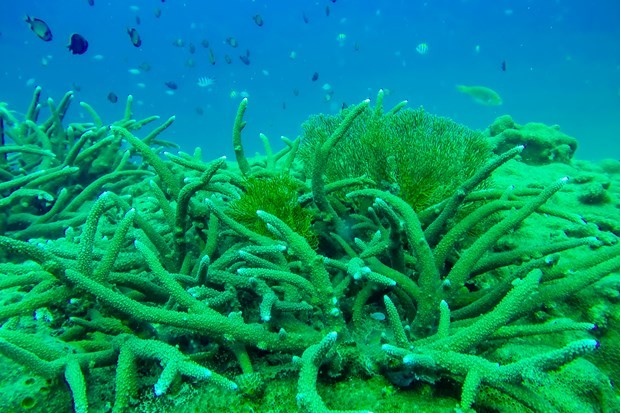 The diverse marine ecosystem in Ba Ria-Vung Tau (Photo: Ngoc Son)
The diverse marine ecosystem in Ba Ria-Vung Tau (Photo: Ngoc Son)Binon Cacao JSC has paid heed to environmental protection and expanding the cacao area while operating the eco-tourism site, giving visitors interesting experiences in the nature and promoting the value of local specialties among them, she added.
Tourists can visit cacao gardens and join cacao harvesting, processing and packaging activities, she added.
Strategy set for Con Dao
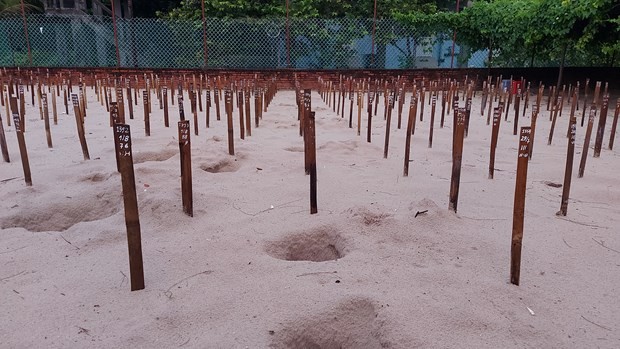 Turtle hatchery at Bay Canh Island-Con Dao National Park. (Photo: Ngoc Son)
Turtle hatchery at Bay Canh Island-Con Dao National Park. (Photo: Ngoc Son)The park is home to 1,077 flora species, a rich and diverse marine ecosystem with coral reefs, seagrass beds and mangroves, and over 1720 marine species, including turtles that come ashore to lay eggs each year. Notably, it has been carrying out the most green sea turtle conservation and rescue operations in Vietnam.
Con Dao’s eco-tourism products that meet national and international standards have drawn crowds of nature lovers.
Le Phong, Secretary of the district Party Committee and People’s Committee, said the provincial People’s Committee has approved a project on eco and leisure tourism at the Con Dao National Park in the 2021-2030 period.
Under the project, the conservation of forest and sea resources will go in tandem with tourism development. Tourism services are also expected to contribute to raising public awareness of natural, cultural and historical values in Con Dao, and of environmental protection.
There are various activities for tourists like watching sea turtles laying eggs and baby turtles being released to the sea, swimming, diving and visiting swallows’ nests, along with leisure and health care services.
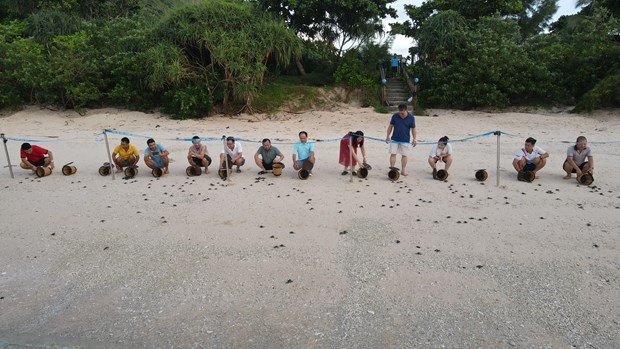 Visitors participate in releasing baby turtles to the sea at the Con Dao National Park. (Photo: Ngoc Son)
Visitors participate in releasing baby turtles to the sea at the Con Dao National Park. (Photo: Ngoc Son)Ba Ria-Vung Tau has also taken a host of solutions to preserve forest and sea resources and biodiversity at the Con Dao National Park, such as building a database on forest resources and a map of forest and sea resources.
Competent forces have conducted regular patrols to prevent poaching and stepped up such activities as tree planting, coral reef restoration and expansion and sea turtle conservation, while enhancing the communication work.
